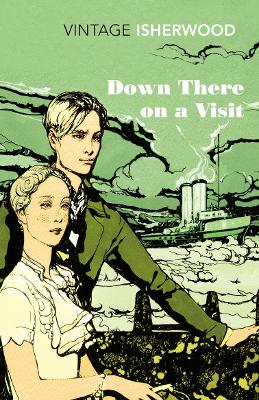FSG Classics
9 total works
WITH A NEW INTRODUCTION BY PHILIP HENSHER
Berlin, the Greek Islands, London and California. 1928, 1932, 1938 and 1940. Four portraits, four settings, four narrators, all known as 'Christopher Isherwood'. Often regarded as the best of his novels, Down There on a Visit tells the vivid stories of Isherwood's life that, together with The Berlin Novels, were to have comprised his great unfinished epic novel.



